Η φυσική ιστορία της θρησκείας
- Author: David Hume
- Publisher: Savvalas
- Μορφή: Soft Cover
- Έτος έκδοσης: 2011
- Αριθμός σελίδων: 170
- Κωδικός ISBN-13: 9789604499410
- Διαστάσεις: 21×14
David Hume
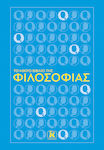
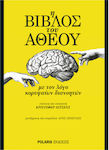
Religion & Metaphysics Books
Η βίβλος του άθεου, Με τον λόγο κορυφαίων διανοητών
Ad from GoldenbooksAdded

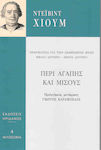

Religion & Metaphysics Books
Dialogues Concerning Natural Religion, and The Natural History of Religion
Added
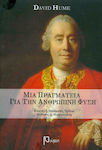


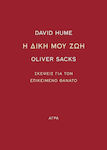
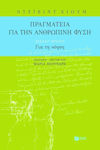


Similar products
 Top rated
Top rated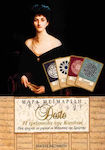
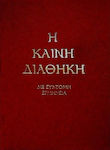 Top rated
Top ratedReligion & Metaphysics Books
Η Καινή Διαθήκη, Με σύντομη ερμηνεία (στη δημοτική)
Ad from GoldenbooksAdded

 Top rated
Top rated

Religion & Metaphysics Books
Βιβλίο μαγείας Ι, Από τις μάγισσες της Σμύρνης: Βότανα, μάγια, φίλτρα, ξόρκια
Ad from BooklibertyAdded

Religion & Metaphysics Books
Η Παλαιά Διαθήκη, With Brief Interpretation, Volume A
Ad from VivliodiktyoAdded
All shops
Prices are calculated for:Luxembourg, Other Payment Options
- 10,30 €
- 10,29 €
- 10,88 €
- 13,72 €
- 11,70 €
Description
As every research concerning religion is of utmost importance, there are two specific issues [...] the one that refers to the foundation of religion in logic and the one that concerns its origin from human nature. Fortunately, the first issue, which is the most significant, allows for the most obvious or at least the clearest solution. [...] However, the other issue concerning the origin of religion from human nature presents greater difficulty. The belief in an invisible, intelligent power has spread [...] among people, in all places and times, but possibly it has not been so universal as to not admit any exception or, to any degree, uniform in terms of the ideas it has proposed.
Specifications
- Genre
- Religion - Theology
- Format
- Soft Cover
- Number of Pages
- 170
- Publication Date
- 2011
- Dimensions
- 21x14 cm
Important information
Specifications are collected from official manufacturer websites. Please verify the specifications before proceeding with your final purchase. If you notice any problem you can report it here.
Reviews
Reviews by our members
Along with John Locke and George Berkeley, David Hume played a central role in the movement of the English Enlightenment as a philosopher, historian, and essayist. His influence is more than evident on his close friend Adam Smith, as well as on Kant and Bentham, while Darwin believed that his inspiration for the theory of evolution bears Hume's imprint. All of the above spectacularly expose how multifaceted and complex David Hume's work was and why he is considered a precursor of modern science.
In "The Natural History of Religion," he analyzes the causes of religion, the psychological forces that shaped it, and its subsequent natural course over time. He argues that the key factors leading to the birth of ideas about God and religion are the uncertainties of life, which ignite hopes and fears, which in turn give rise to ideas about the invisible forces acting in the world. It is there that human imagination takes the reins.
For Hume, the earliest religions, being more intellectually crude, were polytheistic. From these, a more refined monotheism emerged naturally. Hume believes that religion "distorts" human, natural, moral feelings and makes it difficult to rationally understand the true nature of God.
Of course, Hume accepts the existence of God, but rejects conventional Christianity, atheism, theism, and conventional deism. He believed that the acceptance of God's existence is something that a rational person cannot deny. However, speculations about the nature of God are beyond human limited intellectual capacities; speculations that ultimately do more harm than good. The means for understanding the world are not those of theology, which can provoke fanaticism and superstition, but those of psychology, ethics, history, economics, and political science. Hume was tremendously influential in shaping empiricism, skepticism, and metaphysical naturalism. The question that remains suspended for the reader is what Hume means by the term nature and ultimately how close or far from it his thoughts led, or were intended to lead."The Natural History of Religion," although published in 1757, is a timeless text that addresses not only rationalists, opponents of religion, or those who love philosophy, but also the faithful. Primarily, however, it illuminates those who wish to delve into the formation of so-called Western civilization with its good and bad aspects.
Translated from Greek ·Did you find this review helpful?


























